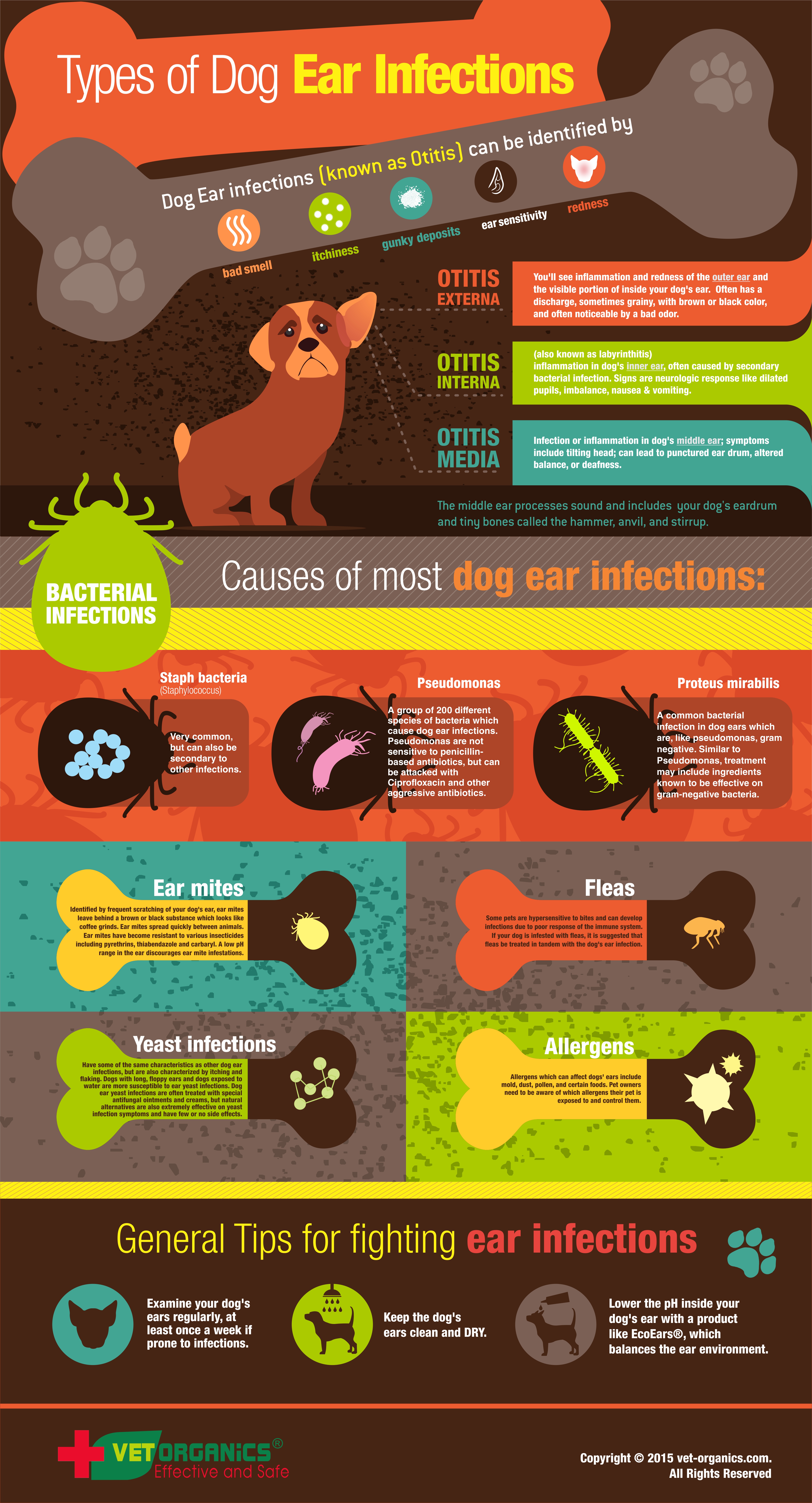
This post may contain affiliate links. We are compensated for referring customers to our affiliate partners.
Does your dog excessively scratch at their ears? Do they shake their head a lot or tilt it to one side? Have you noticed any redness in the earflaps, or a yeasty-smelling odor emanating from the ears? If any of this sounds familiar, your dog may have an ear infection. Ear infections in dogs are very common, but did you know choosing a different type of food could greatly help your dog fight off those ear infections?
A common cause of ear infections in dogs is an allergic reaction to something in the dog’s environment or food. With food, the culprit is often an excess of grain and/or sugar. Sugar feeds the yeast naturally present in the dog’s body, so when a dog has too much sugar in their diet, a yeast overgrowth occurs, and it can build up in the ears. It can accumulate around the folds of the ears and within the canal. It tends to be a dark reddish brown wax-like substance that has a pungent odor.
See your veterinarian right away if you detect signs of an ear infection. Your dog may need treatment with prednisone or another steroid for a brief period. Then you and your veterinarian can holistically look at your dog’s diet, lifestyle, environment, and overall health, and determine an ongoing treatment plan. If your dog also has itchy skin, hot spots, hair loss, and/or reoccurring skin infections, the problem could be a food allergy.
VIDEO: Temporary Home Remedies For Ear Infections In Dogs
You and your veterinarian might decide to do a food trial or an elimination diet. A food trial would consist of feeding your dog a novel protein and carbohydrate that your dog has never eaten. Boar and rice, or rabbit and potato might be appropriate options. There are dog foods on the market that contain broken down proteins and carbohydrates that are so small they do not trigger an allergic reaction. Look for foods that say ‘limited antigen’ or ‘hydrolyzed protein.’
Dog Foods That Can Help With Allergy Induced Ear Infections In Dogs
Royal Canin HP Hypoallergenic Dog Food
One option is Royal Canin HP Hypoallergenic Hydrolyzed Protein dog food. This food boasts ingredients that won’t upset your dog’s system and help build digestive flora. It uses rice as the carbohydrate, which is often the easiest for pets to digest. It also has omega-3 fatty acids to promote healthy skin and coat. Purina Pro Plan Veterinary Diets HA Hydrolyzed Formula dry dog food is another option for a hydrolyzed soy protein diet that is easily digestible.
With the most common food allergens being beef, dairy products, chicken, lamb, fish, chicken eggs, corn, wheat, and soy, there are many dog foods that are ‘limited ingredient’, ‘grain fee,’ ‘holistic’, and ‘hypoallergenic’, that do not contain most or any of these ingredients.
Pinnacle Holistic Dog Food
Pinnacle Holistic only comes in grain free varieties, and you can find ones with duck, which may be a good choice if you want to avoid the top allergens. They also contain quinoa, garbanzo beans, and sweet potatoes for energy and antioxidants, and they are high in omega-3 fatty acids. Pre and probiotics help your dog’s digestion, and a complex mix of vitamins and minerals, including vitamin C, vitamin E, vitamin B6, vitamin B1, vitamin B12, vitamin D3, biotin, riboflavin, folic acid, manganese, zinc, and bromelain add to the list of nutrients in this food.
Great Life Limited Ingredient Dog Food
Great Life Limited Ingredient dog food might be another option if you are seeking a grain free without common allergens. Although it does have salmon oil, so keep that in mind if you think your dog might be allergic to fish. The top 5 ingredients are: buffalo, tapioca, yams, bok choy, and zucchini. The food also contains blueberries, freeze dried buffalo liver, freeze dried kale sprouts, freeze dried red clover sprouts, and probiotics.
Wellness Simple Limited Ingredient Diets
Wellness Simple Limited Ingredient Diets is another highly-rated dry dog food that offers a variety of formulas such as: duck and oatmeal, grain free turkey and potato, lamb and oatmeal, grain free salmon and potato, a salmon and pea formula for healthy weight management, and a small breed salmon and potato. None of these contain wheat, corn, soy, gluten, or artificial preservatives, colors, or flavors. They do promote pre and probiotics and omega-3 fatty acids. Wellness Simple also carries canned foods: duck and oatmeal, lamb and oatmeal, grain free turkey and potato, and grain free whitefish and potato.
There are several reasons dogs get ear infections. But food allergies are quite common and can be easily addressed with changes in diet. Since ear infections in dogs can occur for many different reasons, work with your veterinarian to determine the cause of your dog’s ear infections. If switching up their diet does not help, you can examine other possible causes.
Ear infections in dogs can sometimes be hereditary and breed specific. Dogs with floppy ears are more likely to get the buildup of bacteria, and potentially have it go unnoticed by their owners. If the dog has an excessive amount of hair around the ears, this could also produce a perfect environment for the bacteria to grow. It may be a good preventative practice to keep the hair around the inside of the ear trimmed and groomed.
Your dog could also be suffering from an environmental allergy, such as pollens, dust mites, and molds. Or if your dog has regular access to a lake or ocean, the excess moisture getting in the ears could cause yeast and bacteria to reproduce. Be sure to gently dry your dog’s ears after a swim to help prevent infection. Parasites such as mites could be another reason your dog is shaking its head or excessively scratching their ears. Mites are uncommon, but your veterinarian will examine your dog’s ears and be able to see if that is the case.
Ear infections in dogs are incredibly unpleasant and uncomfortable for your dog, and they can have serious risks if left untreated. See your veterinarian immediately if you suspect your dog has an ear infection.

